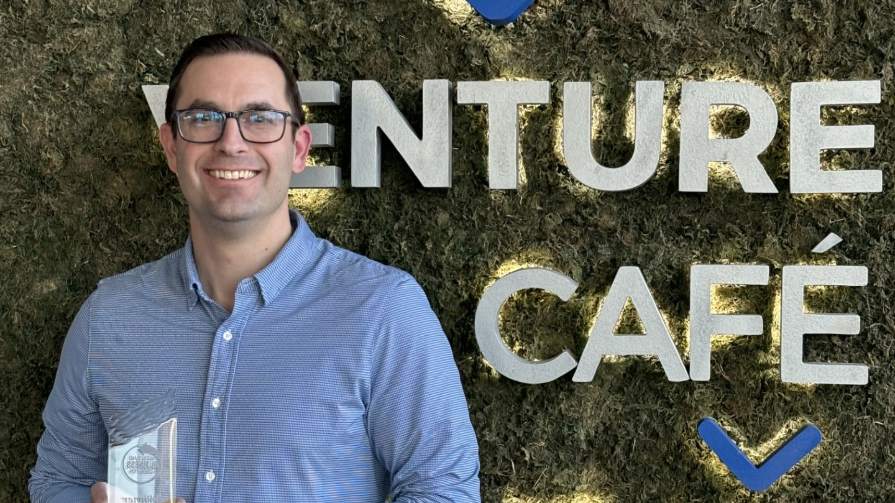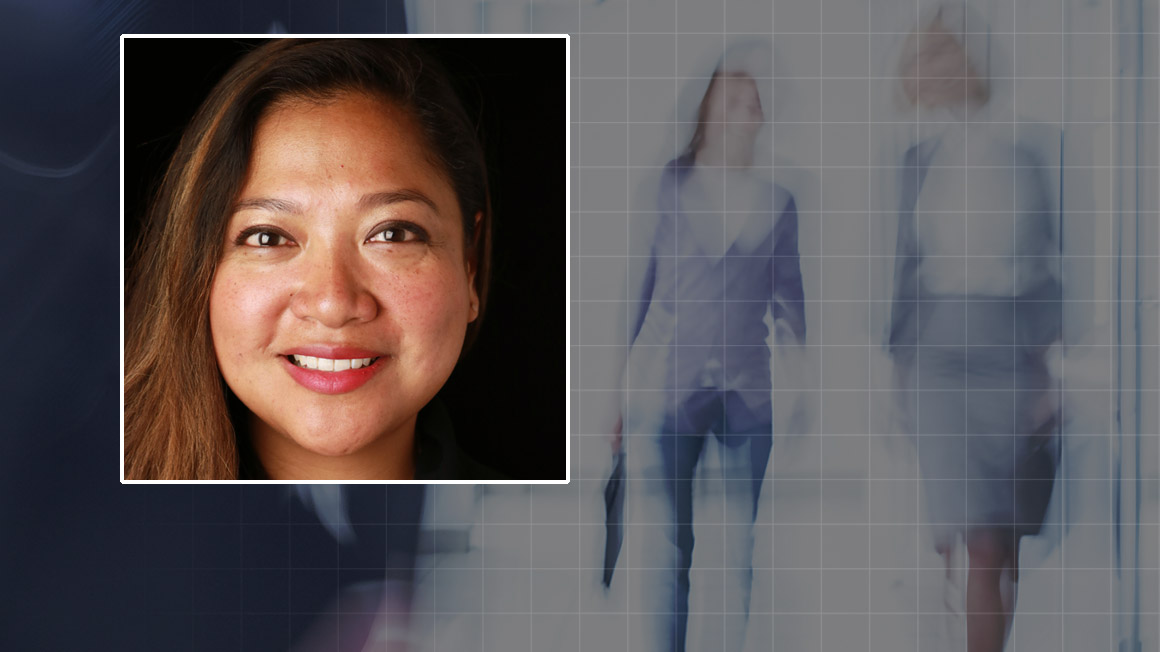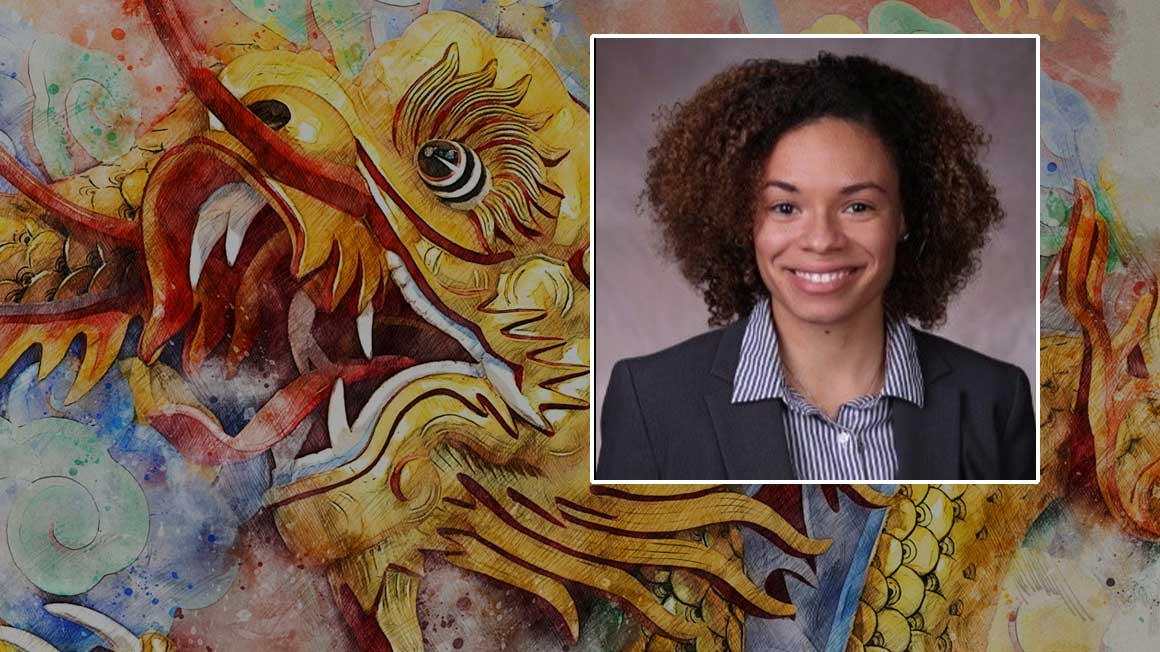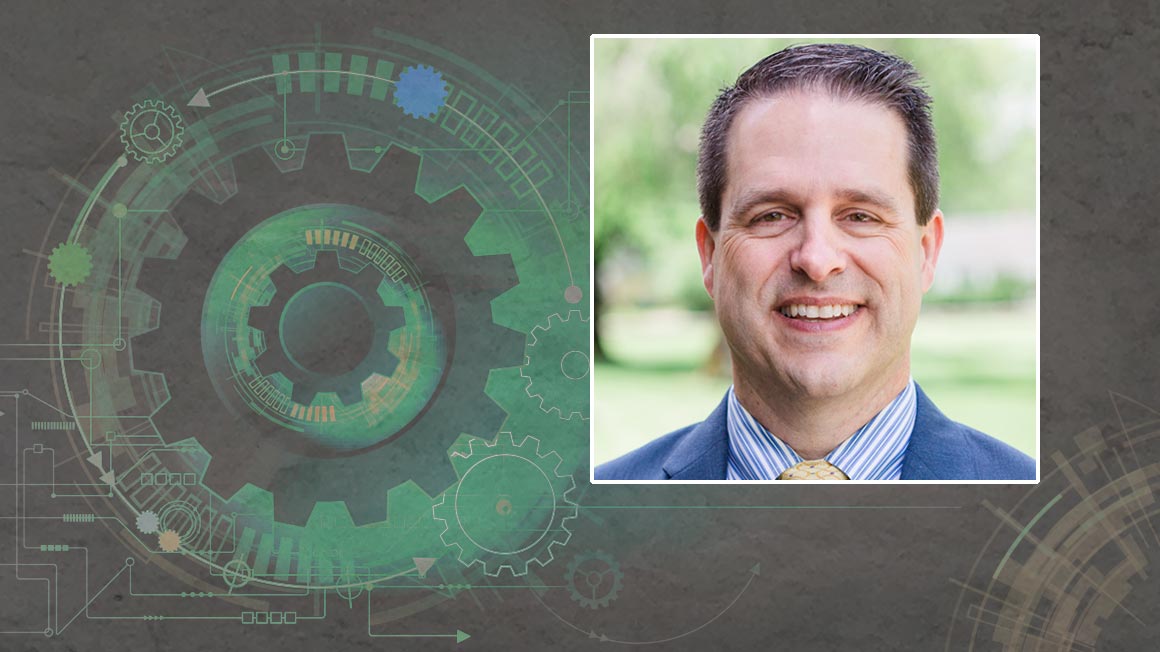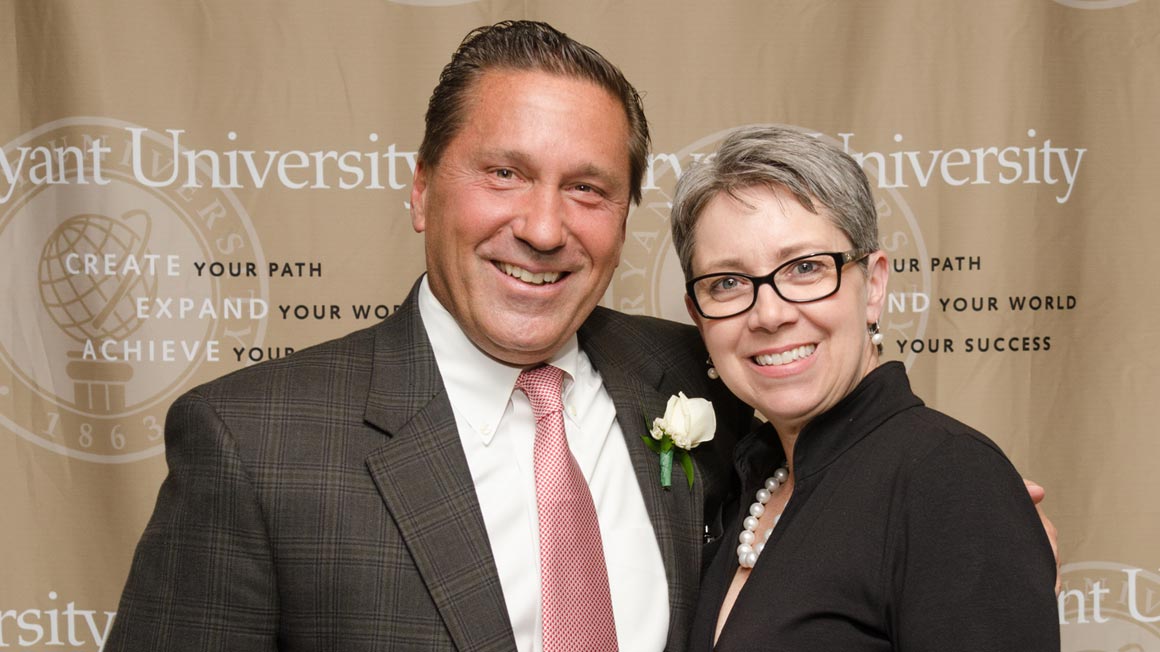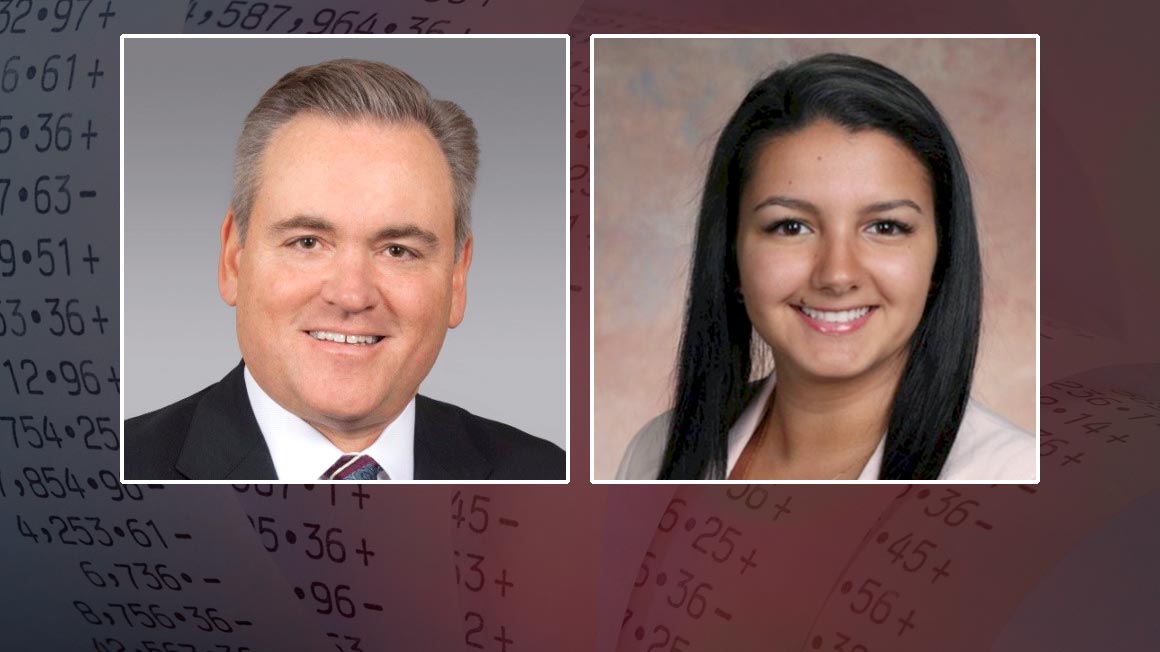An estimated 40 million in the United States and more than 300 million worldwide suffer from anxiety. What if a handheld device could offer them a breath of fresh air? Greg Calderiso' 09MBA poses this question to judges during his presentation at the 2024 RI Buisness Competition, where his invention, Just Breathe — a device with a connected app that uses haptic airflow cues to promote a range of breathing techniques that ease sleep, stress, and anxiety — took the top prize of more than $27,000 in cash and in-kind services.
“It’s like you have a sanctuary in the palm of your hand,” states Calderiso of his winning invention.
Throughout his presentation, Calderiso showcases the years of work that have gone into building his startup, including the research he’s conducted, the countless hours of engineering and tinkering, the network he’s built, and the careful business planning he’s created.
In short, Calderiso notes, “I'm proud to say we've come a long way since I sent my wife a text three years ago saying, 'I think I have an idea.’”
Just Breathe’s roots lie in the COVID-19 pandemic, when “life had stopped,” says Calderiso, who was managing Amica Insurance’s IT business office at the time. As he adjusted to the new world, he found an opportunity for self-improvement and began to consider his lifestyle, the stressors that affected him, and how he could go about treating them. “I really wanted to start making some life changes and trying to understand my health,” he says.
He made some adjustments, including hiring a sleep coach and carefully monitoring his health with a Whoop device and Oura ring, and they seemed to work — for a time. “Then the world started to come back up again, and it became much more challenging to bring those different practices with me,” Calderiso says.
The stress returned and became even harder to manage. “My autonomic nervous system was getting triggered while cooking dinner, while watching TV, while scrolling on my phone, or writing code — things I actually enjoy doing. My body was unnecessarily stressing itself,” says Calderiso.
“I'd be working on a PowerPoint presentation, but my body would think I'm fighting a bear,” he notes.
Doing a bit of research led him to discover that he was not alone in his struggle with anxiety. He had discovered mindful breathwork as a viable aid and — inspired by how AirPods opened up more opportunities for audiobook listeners — thought a breathwork device could integrate this practice into his day-to-day life and provide some assistance.
“So I did what anyone does: I Googled for it,” says Calderiso. “But I couldn’t find the product I wanted and, me being me, I decided, well, I’ll build it then.”
“The first thing I remember about the program is my corporate strategy class with (Trustee Professor of Management) Michael Roberto. I feel like it really changed me as a leader, as a human, and as an entrepreneur.”
The need for anxiety relief has also produced a growing market for treatments, with billions of dollars spent in the U.S. alone. Calderiso describes his mission as disrupting the wellness market while setting a new standard of care for treating anxiety. “This is about building and about creating something that I think can change a lot of lives, including my own,” he states.
It's also an opportunity to solve a puzzle — a “job to be done,” as Calderiso puts it, quoting business management expert Clayton Christensen. “It's less about running my own business and more about building and creating,” notes Calderiso, who has built computers and computer systems throughout a successful career that saw him named to Providence Business News’s 40 under 40 in 2017.
“I’m very fortunate in the way I was raised by my parents. If I had imagined something, I was encouraged to build it or create or discuss my ideas and bring them into reality,” Calderiso reflects. “I get excited and engaged about building and bringing ideas to life.”
To bring Just Breathe to life, Calderiso, a Director of Information Technology at TruStage, tapped the New England Medical Innovation Center (NEMIC), a Rhode Island nonprofit that supports innovators and entrepreneurs in the medical technologies space, which connected him with business advisors and medical professionals. Other groups, such as RIHub, also aided him in growing his network even wider.
“It became all about the community,” he says. “The community here is incredible and very giving. And because it's Rhode Island, you're only a person or a phone call away from the next person you need.”
With his new network’s advice, Calseriso built a prototype and tested it with positive results.
Turning an innovative device into a viable business was another challenge. “I've always been very business-minded and pseudo-entrepreneurial. I've been trained and experienced the rigor of a lot of different scenarios,” reflects Calderiso.
He had his Bryant MBA to rely on as well. “The first thing I remember about the program is my corporate strategy class with (Trustee Professor of Management) Michael Roberto,” Calderiso says. “I feel like it really changed me as a leader, as a human, and as an entrepreneur.”
“I put a lot of work into practicing and refining things. One thing I’m definitely not afraid of is working through the messy middle.”
The course introduced him to important concepts and theories that guided his work, helped him to hone his business acumen, and provided insight into how he could view the business world. “Part of the course was about learning to think like an investigator and being able to look into a company's strategy,” he recalls.
“When I was putting together my own financials and predictions, it was really fun to reflect back and say, ‘Oh, I remember looking at other companies and saying, there's a good company, there's a bad company, and here's why,’” says Calderiso. “Now, I'm able to use that going forward with my own company.”
Both his device and business plan would be tested at the Rhode Island Business Competition. Run by Bryant University adjunct professor of Management Elizabeth Carter, the annual competition challenges aspiring entrepreneurs, new businesses, and early-stage companies to present their business ideas — complete with full investor decks — and evaluates the commercial potential of the applicants’ businesses, the innovative nature and technical feasibility of their idea, and the likelihood that they can achieve a sustainable, competitive advantage.
“We'd done a few smaller three-minute pitch competitions or 90-second pitch competitions, but this was the first high-stakes one, for sure,” says Calderiso. “I had to put a full business plan together. I had to understand my financials. I had to really understand the problem I was trying to solve and I had to storytell around that and really connect the vision of how this product could help people."
He credits more than a decade of involvement with improv comedy, including running an improv theatre with his wife, as a key to his success. “It's all about storytelling,” he says. “When I was starting to get promoted, I had to spend more time public speaking and I wanted more confidence doing that. I thought, if I could get up on stage and do a show in front of strangers, well, then I can get up and talk to executives.”
But even with all the tools at his disposal, including his team of advisors who offered feedback as he perfected his pitch, the final presentation, like every other element of Just Breathe, was the result of dedicated work. “I put a lot of work into practicing and refining things,” says Calderiso. “One thing I’m definitely not afraid of is working through the messy middle.”
In the end, that work paid off. Winning the competition, with his wife and daughter at his side, was seismic, says Calderiso. “It was incredibly emotional,” he admits.
The competition’s monetary award, and in-kind services, including accounting and legal services and co-working space, comes at a key time for Just Breathe as the company works toward the launch of their first flagship device, slated for 2025.
“This has been something that I've had a lot of support on, but I’ve also put a lot of early mornings in before the family wakes up and after my day job ends,” says Calderiso. “To have that validated — that you had this idea, which started out of you coding and soldering and building in a basement, and now it’s seen as a business worthy of winning a competition like that — is huge.”
